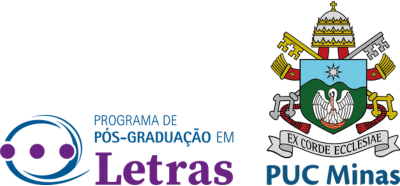The mind map as an active methodology in the teaching of reading
DOI:
https://doi.org/10.5752/P.2358-3428.2023v27n59p92-117Keywords:
Correção de Fluxo, Mapa mental, Metacognição, Metodologia ativa, Estratégias de leituraAbstract
The goal of this article is, based on the results of an action-research with students with age-grade distortion, to discuss the use of mind maps as an active methodology in the teaching of reading. To achieve this goal, we first present a theoretical review of the concept of active reading as a social cognitive situated process. Then, we define and distinguish the conceptions of conceptual map, cognitive map and mind map, exploring their pedagogical uses to promote the adoption of reading strategies. Finally, we explicit the use of mind maps as an active methodology before, during and after the reading process and its relationship with multiliteracies, based on the conception that the production of a mind map is a process of retextualization.
Downloads
References
ALMEIDA, Douglas; MERCADO, Luiz Paulo; FERREIRA, Lilian. Usos de aplicativos de construção de mapas cognitivos como metodologia ativa no ensino superior. LES -Linguagem, Educação e Sociedade, Teresina, ano 25, n. 45, mai/ago 2020. Disponível em<https://revistas.ufpi.br/index.php/lingedusoc/article/view/9868 >. Acesso em 13 de jan. 2021.
ANDRETTA, Ilana et al. Metacognição e aprendizagem: como se relacionam? Psico. Porto Alegre: PUCRS, v. 41. n1, pp7-13,jun/mar 2010.
ARROYO, Miguel. Currículo, território em disputa. Petrópolis, RJ: Vozes, 2011.
BEBER, B.; BONFIGLIO, S. U.; SILVA, E. Metacognição como processo da aprendizagem. Rev. Psicopedagogia, 2014; 31 (95): 144-51.
BORUCHOVITCH, Evely. Autorregulação da aprendizagem: contribuições da psicologia educacional para a formação de professores. Revista Quadrimestral da Associação Brasileira de Psicologia Escolar e Educacional, SP. Volume 18, número 3, setembro/dezembro de 2014: 401-409.
BRASIL, Ministério da Educação. Educação é a base. Página inicial. Disponível em
http://download.basenacionalcomum.mec.gov.br/ acesso em 21 de jan 2021.
BUZAN, Tony. Dominando a técnica dos mapas mentais: guia completo de aprendizado e o uso da mais poderosa ferramenta de desenvolvimento da mente humana/ Tony Buzan; tradução Marcelo Brandão Cipolla - São Paulo: Cultrix, 2019.
DEWEY, John. Como pensamos. Tradução de Godofredo Rangel. São Paulo: Nacional, 1ª ed. 1933. ed. 1979.
DURING, Steven; ARTINO, Anthony. Situativity theory: A perspective on how participants and the environment can interact: AMEE Guide no. 52. Medical Teacher 33, 188–199. (2011). Disponível em: <https://doi.org/10.3109/0142159X.2011.550965>. Acesso em: 24 fev. 2020.
FLAVELL, John. Metacognition and cognitive monitoring. A new area of cognitive-developmental inquiry. American Psychologist, 34(10), 906-911. 1979.
FREIRE, Paulo. Pedagogia da autonomia: saberes necessários à prática educativa. São Paulo: Paz e Terra, 1996.
GÓES, Natália; BORUCHOVITCH, Evely. O uso do mapa conceitual na formação de futuros professores em disciplina de estágio supervisionado: um relato de experiência. Psicologia: Ensaio & Formação. Ago/dez 2017,8 (2) – 53-62.
JOLY, Maria Cristina; SANTOS, Lílian; MARINI, Janete. Uso de estratégias de leitura por
alunos do ensino médio. 16(34), pp. 205-2012. Universidade São Francisco, 2006.
JOU, Graciela; SPERB, Tania. A metacognição como estratégia reguladora da aprendizagem. Psicologia: reflexão e crítica. 19 (2), 177-185, 2006.
KLEIMAN, Angela. Oficina de Leitura: teoria e prática. 9.ed. Campinas: Pontes, 2002.
MORAN, José. Metodologias ativas para uma aprendizagem mais profunda. 2013. Disponível em: <https://www2.eca.usp.br/moran/wp-content/uploads/2013/12/metodologias_moran1.pdf>. Acesso em: 20 de set. de 2022.
NEVES, Dulce. Meta-aprendizagem e a ciência da informação: uma reflexão sobre o ato de aprender a aprender. Perspectivas em ciência da informação. [S.l.], v. 12, n. 3, p. 116-125 128, dez. 2007. ISSN 19815344. Disponível em: <http://portaldeperiodicos.eci.ufmg.br/index.php/pci/article/view/151>.
PEREIRA, Marli. Letramento e retextualização: conceitos e relações. In: RIBEIRO, R. M. P. (org.) Letramentos e multiletramentos na escola: teorias e práticas. Campos dos Goytacazes - RJ: Brasil Cultural, 2018, p.54-77.
RIBEIRO, Celia. Metacognição: um apoio ao processo de aprendizagem. Psicologia: Reflexão e crítica, 16(1), pp. 109-116. Universidade Católica Portuguesa, 2003.
SCHRAW, Gregory. Promoting general metacognitive awareness. Instructional Science. 26, 113-125. http://dx.doi.org/10.1023/A:1003044231033.
SILVA, Wilson; CLARO, Genoveva; MENDES, Ademir. Aprendizagem significativa e mapas conceituais. Formando professores: contextos, sentidos e práticas. Educere PUCPR XIV Congresso Nacional de Educação, 2019.
SINHA, Chris. Pessoas situadas: aprender a ser um aprendiz. In: Learning Sites: Social and Technological Resources for Learning. Oxford, Pergamon, 1999; pp 32-48.
SOLÉ, Isabel. Estratégias de leitura. 6. Ed. Porto Alegre: Artmed. 1988.
SOUZA, Nadia; BORUCHOVITCH, Evely. Mapas conceituais: estratégia de ensino/aprendizagem e ferramenta avaliativa. Educ. rev., Belo Horizonte , v. 26, n. 3, p.195-217, dez. 2010 . Disponível em <https://doi.org/10.1590/S0102-46982010000300010>. Acesso em: 13 jan. 2021.
KINTSCH, Walter; VAN DIJK, Teun. A. Strategies of discouse comprehension. San Diego, California, Academic Press, 1983.
VILANOVA, Luciana. Rabiscos Terapêuticos: Como os doodles podem auxiliar na Arteterapia. Rio de Janeiro: Livros Ilimitados, 2016.
Downloads
Published
How to Cite
Issue
Section
License
By submitting any manuscript (articles, reviews, or interviews) authors automatically assign full copyrights to PUC Minas. Authors are requested to ensure:
• The absence of conflicts of interest (relations between authors, companies/ institutions or individuals with an interest in the topic covered by the article), as well as funding agencies or sponsoring institutions of the research that culminated in the article.
This file is licensed under the Creative Commons Attribution - Share Alike 4.0 International.









